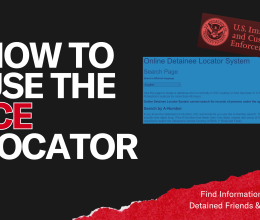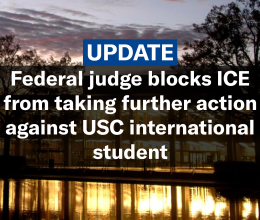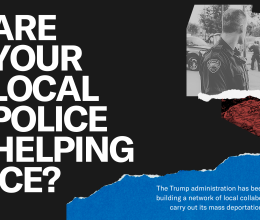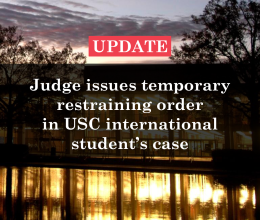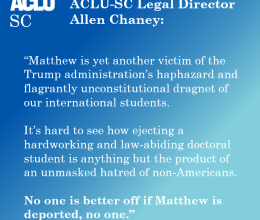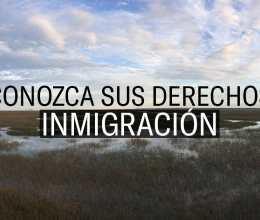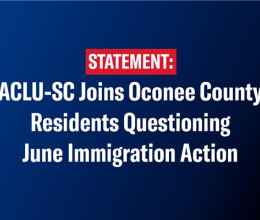
Charleston Post & Courier
June 28, 2012
BY VICTORIA MIDDLETON
Monday’s Supreme Court ruling on S.B. 1070 should be seen as a strong rebuke to Arizona lawmakers who involved their state in immigration enforcement and as a cautionary signal to other state legislators, including South Carolina’s.
The court struck down three of the four Arizona provisions for interfering with federal control over immigration. It expressed concerns about the fourth provision, the controversial “show me your papers” requirement that mandates police determine the immigration status of someone arrested or detained if they have a “reasonable suspicion” that person is not in the country legally. While indicating that it is too early to tell if “show me your papers” is unconstitutional, the court recognized that this mandate may well suffer from defects that make it susceptible to legal challenge going forward. For example, police officers cannot delay the release of individuals for no reason other than to verify their immigration status.
And our own law enforcement leaders have attested that such practices ultimately undermine police work and jeopardize public safety in our communities by making victims and witnesses afraid to report crimes. Even the law’s defenders cannot explain how it will be possible to enforce these provisions without resorting to such stereotypes.
As if violating the Constitution’s guarantees of equal protection to “all people” in our nation were not worrisome enough, if South Carolina’s law is allowed to go into effect, it will take a financial and emotional toll on the state, harming citizens and non-citizens alike.
Such laws also exact a heavy financial toll, devastating local economies. Alabama’s economy may have suffered a hit of as much as $6.5 billion as a result of its law, according to a University of Alabama study.
Arizona saw a drop in sales tax revenue and a jump in the unemployment rate when S.B. 1070 first became law in 2010. Farmers have seen their crops rot and are planting less because the workers they have relied on for decades have fled in fear. Other actual and potential costs include lost revenue from tourism and outside investment. What international executives will want to subject themselves to possible arrest, like the Honda and Mercedes-Benz executives who were arrested and detained in Alabama?
Our goal in continuing to challenge South Carolina’s Act 69 is to defeat a law that encourages racial profiling, undermines local law enforcement and sows a climate of fear that pits neighbor against neighbor. We will fight any future attempts by South Carolina lawmakers to pass additional unconstitutional measures that unfairly discriminate against the immigrant community.
We will call on the Department of Homeland Security (DHS) and Immigration and Customs Enforcement (ICE) to terminate all immigration enforcement cooperation programs that involve state and local police departments, including four “287(g)” agreements in South Carolina which delegate immigration agent authority to state and local police. These programs partnering state and local police with federal immigration authorities invite racial profiling and discourage victims and witnesses of crime from calling the police for fear of immigration consequences.
We will continue to urge Congress to pass the End Racial Profiling Act (ERPA) which makes it unlawful under federal law for state and local law enforcement to profile based on race, religion, ethnicity or national origin.
Finally, we will urge Congress and the Executive Branch to craft an immigration policy that reflects true core American values and respects the Constitution.
Victoria Middleton is Executive Director of the ACLU of South Carolina

